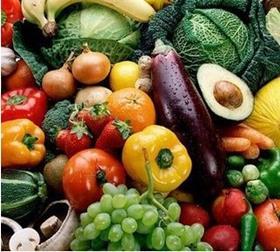
The UK’s market for organics expanded by 6.3 per cent in the 52 weeks to 13 August, driven by strong growth among shoppers in the south and south west.
The figures, announced at the Soil Association’s annual trade briefing in London on 19 September, suggest that the organic market will exceed £2.2 billion in sales by the end of the year. This would be the sector’s best ever annual sales performance.
Data from Kantar Worldpanel showed that while London is still the largest sales region, strong growth has been coming from across the south and south west mainly from a younger shopper and from smaller households looking for ethically driven purchases.
Values and provenance are more important than discounts and low price to these shoppers and the segment is growing. Supporting research from England Marketing showed that over half of shoppers are actively looking for assurance labels.
The top three sales categories – fresh produce, dairy and grocery – have driven the growth, with grocery alone adding an enormous 39 per cent increase in sales over the last four years, according to Nielsen data for the 52 weeks to 1 July.
Ocado, the fastest growing retailer of organic with over nine per cent share this year, spoke at the event. Senior trading manager Kevin Hancock said: “Organic at Ocado has grown by 16.2 per cent in the last twelve months, and long may it continue.
“We strive to help our suppliers to grow with us and continue to develop products, allowing our customer base to further enjoy their organic lifestyle.”
Fresh organic fruit has enjoyed unprecedented sales growth in recent months, with innovation across categories including teas, nut butters, free-from products, energy bars and cereals also proving successful.
Increased availability of organic has widened the market with significant ranges now available online and through discounters as well as increased ranges in the multiples and independents.
Speaking at the event, Dan Rusga, marketing director at Yeo Valley, the UK’s largest organic brand, said: “Consumer attitudes are changing, with the importance of quality products and traceability now at the forefront of producer, brand and retailer strategies.
“Organic September is a key time to put our organic stories front and centre – to share who we are with shoppers, bring awareness of organic to consumers, and show retailers that they can count on sales as a result.
“But organic isn’t a badge. Consumers easily see through inauthenticity. Delivering products that continue to meet consumer needs and values, which match our own, gives us a unique opportunity to keep the organic market growing.”



